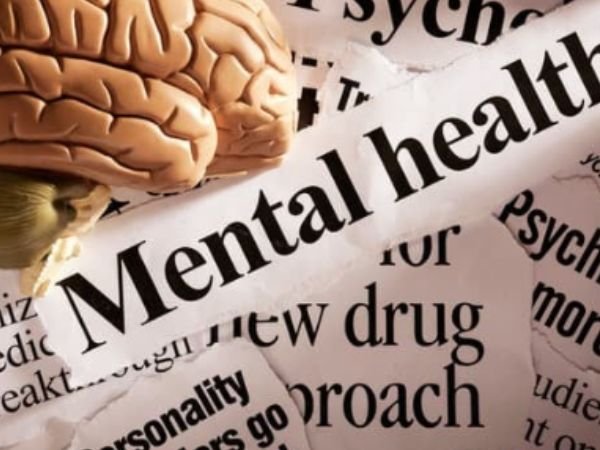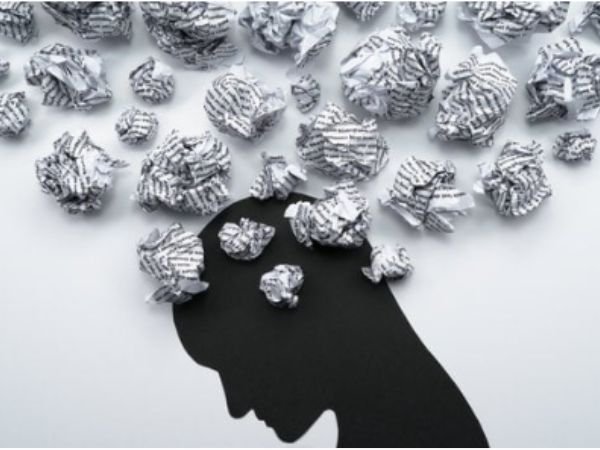Introduction

Millions of individuals across the globe are disabled, and these affect the physical, sensory, intellectual, or mental capacities of these individuals. Although there is a lot of focus on the physical dimension of disability, there is a conflicted but poorly researched understanding of mental illness. Moreover, Studies and surveys still determine that mentally ill and disabled patients are more likely to be depressed, anxious, and even stressed.
As per World Health Organization (WHO, 2022), people with disability are nearly twice as likely to experience problems of mental health when compared to the non-disabled group. Additionally, they remain largely cut off from enjoying their share in society due to obstructions, stigmatization, and denial of their due care. This article educates us about the Specially Challenged psychological problems, why they are occurring, and what can be done in that regard by a nation in the perspective of inclusiveness and humanness.
Understanding Disabilities: The Different Types and Their Influence

Disabilities occur in different ways and affect the life of a person differently. They occur in different categories:
1. Physical Disabilities

Such disabilities are spinal cord injury, muscular dystrophy, cerebral palsy, and arthritis. Physical impairments will most probably cause individuals to have limited mobility, thus the activities of daily living will be difficult. Dependent living will most probably result in frustration, helplessness, and low self-esteem.
2. Sensory Disabilities

Sensory disabilities comprise disability of eyes or ears, i.e., blindness or poor vision, deafness, or partial deafness. They cause communication problems and lead to social isolation and further mental agony. Deafness has been found to be dangerous for the development of anxiety and depression because of communication and isolation problems (Journal of Deaf Studies and Deaf Education, 2021).
3. Intellectual and Developmental Disabilities

Down syndrome, autism spectrum disorder (ASD), and intellectual impairment fall under them. Additionally, Individuals with intellectual disability tend to have independence and social integration. Over 50% of individuals with intellectual disability possess mind disorders of health, primarily due to the fact that they are unable to convey and express feelings, states the National Institute of Mental Health (NIMH, 2022).
4. Mental Health Disabilities

Some disabilities have a very direct effect on the mental well-being of the person, such as schizophrenia, bipolar disorder, and depression. All these alter the mood, thought process, and behavior of the person, and day-to-day life and interaction become challenging.
Know More: 11 Best Exercises for Diabetes Management
Moreover, each disability category has problems that affect mental health one way or another. Along with intellectual and physical disability is the matter of discrimination, inaccessibility, and segregation from the world out there to serve to accumulate problems of mental health.
Problems Faced by Specially Challenged with Severe Mental Illness

1. Loneliness and Isolation
The majority of the disabled face challenges of social engagement based on deficiency or communication problems. They thus become isolated in society. Lancet Psychiatry Journal (2023) carried out a study and concluded that the Specially Challenged are 60% more socially isolated compared to non-disabled individuals.
For example, the Specially Challenged one will not go out as most public establishments are not wheelchair accessible. The deaf one can’t go out to parties where no one won’t be able to interpret their sign language. These usually lead to isolation and loneliness, one of the causes of depression.
2. Stigma and Discrimination
Even with the progress made in disability rights, there is still stigma and discrimination. Disabled individuals view themselves in society as weaker, less able, or more dependent, and are negatively impacted by such an attitude.
65% of people with disability reported discrimination against them in school, the labor market, or the healthcare system, according to the National Alliance on Mental Illness (NAMI, 2022) survey. Internalized stigma comes as a consequence of repeated exposure to negative messages, and one feels that they are a burden to other individuals. That will definitely lead to depression, anxiety, and uncertainty about self.
3. Chronic Stress Due to Everyday Problems
It is not uncommon for many disabled individuals to experience chronic stress in having to constantly adapt to a nondisability-friendly world. Taking the bus, visiting the doctor, or even shopping for groceries can be stressful.
4. Financial Burden and Mental Illness
A disability will be accompanied by a costly tag for health care, i.e., therapy, adaptive equipment, drugs, and home modification. Journal of Health Economics (2022) discovered that disabled households spent approximately 37% more on health care compared to non-disabled households. The cost may lead to mental issues like depression and anxiety, particularly in the unemployed or those with low work capacity.
5. Constrained Choices and Job Barriers
Work is central to the development of self-esteem, relationships, and economic self-sufficiency. The labor market is a deterrent barrier for people with disabilities. Just 38% of employable persons with disabilities are employed compared to 78% of persons without disabilities, according to the United Nations Disability Report (2022). Inaccessibility to career opportunities results in low self-esteem, stress, and worthlessness.
6. Exposed to Abuse and Trauma
It is confirmed by research that disabled people tend to be victims of such abuse in the guise of physical abuse, emotional abuse, economic abuse, and sexual abuse. Disabled victims are 2.5 times more likely to be a victim of violent crime to non-disabled victims. Abuse leads to severe emotional harm, PTSD, and chronic mental illness. Disabled victims also lack resources and support groups to report and exit the abusive relationship.
7. Limited Access to Mental Health Treatment
Whereas disabled patients require mental treatment, they receive none. Some of them are:
- Fewer wheelchair-accessible therapy rooms
- Lesser mental health staff who can accommodate disabled patients
- Fewer sign language interpreters to accommodate deaf people
- None whatsoever in the form of money to be used to access private mental treatment
A study says that 45% of the specially challenged are inaccessible to mental health treatment unless facilitated to be accessed.
How to Improve Mental Health for Disabled People?

Most crucial measures to create such solutions are:
1. Increase Access to Mental Health Care
- Offer teletherapy and internet counseling for accessing people with mobility impairment.
- Train mental health practitioners in a manner so that they can practice with clients of every category of disabilities.
- Make mental health interventions affordable and accessible to the public.
2. Support Social Inclusion
- Offer inclusion community program and social activity support.
- Offer peer mentoring support, and disability advocate groups.
- Offer sensibility to the public for prevention of stigma, and elimination of stereotyping.
3. Expand Job and Education Opportunities
- Encourage inclusive recruitment by companies.
- Provide disabled workers with access to assistive technology and work adjustments.
- Expand education bursaries and vocational training schemes.
4. Prevent Abuse and Strengthen Legal Protection
- Provide extended enhanced legal protection and reporting facilities to abused disabled adults.
- Provide emergency response to all.
Summing up,
Lastly, People with disability have unique mental illness problems to which others might keep their distance. We can bring about a more tolerant and accepting society by ensuring maximum access. Shattering the chains of stigma, and promoting mental health literacy. Moreoever, All human beings deserve to live with respect, dignity, and fair opportunity, regardless of what they can do. To begin at last to make a difference is to observe the issues and to do something about them. Maybe organizing a campaign to change policy, acting as an advocate on behalf of your disabled friend. Or simply being a bit more tolerant of the ordinary issues of millions and millions of people around the world.


